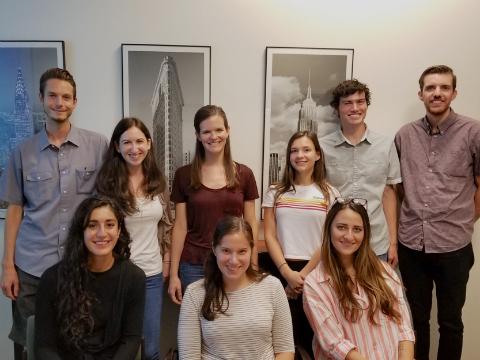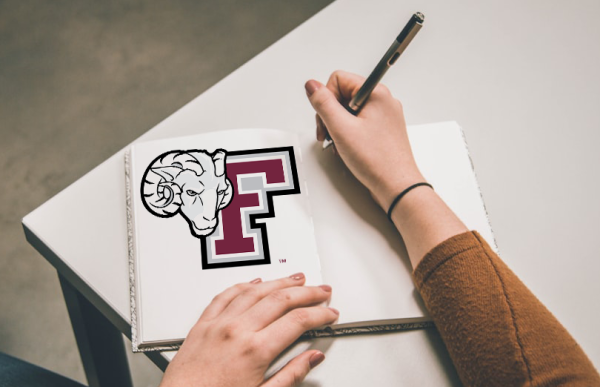Psychology Students Analyze Sleep and the Brain

By Julia Rist
When Fordham students are interested in understanding what is going on in their heads, they head to the Zimmerman Clinical Neuropsychology Laboratory. The lab group, which is based in the psychology department, allows students to conduct research in all things brain-related.
Molly Zimmerman, Ph. D., an associate professor in the Psychology Department, leads the group. Zimmerman said that this laboratory gives students the freedom to research a number of different topics.
“I have a wonderful lab at Fordham where we examine how human cognition contributes to and is impacted by a range of common disorders,” Zimmerman said. “These disorders can range from sleep disorders to dementia to traumatic brain injury.”
There are currently 12 Fordham students working in the lab – four undergraduate students, who come from both the psychology and integrative neuroscience majors, and eight graduate students.
Currently, the lab is conducting research on two separate topics. One of the projects is called “Sleep, Light and Cognition.” In this study, Zimmerman and the Clinical Neuropsychology Lab studies how sleep disruption from light exposure impacts the cognitive function of college students.
Zimmerman said her interest in sleep disorders is what originally led her to pursue this study. She said that her research has an extremely practical application. Students can be woken up from a computer light or a light from their phone on a nightly basis; this may impact how they act the next day.
“I knew that light exposure was a prominent regulator of our sleep cycles and I could see that students, perhaps more than any other age group, were constantly looking at their smartphones and computers all day,” Zimmerman said. “This is important because smartphones and computers are a major source of blue light, which is known to have an “alerting” effect on the human circadian rhythm. Exposure to too much blue light late at night can significantly delay the sleep cycle.”
Zimmerman gathered data by having participants use an actigraphic device, that they wore on their wrist. The device has the ability to monitor participants’ sleep and activity levels, and participants wore these devices over the course of 14 days. Zimmerman also administered a neuropsychological test battery to each participant in order to measure cognition.
Zimmerman said the biggest challenge her team encountered during this study was the most surprising one. As the weather got colder, people tended to wear long-sleeved shirts and more layers, which got in the way of measuring how much light the participants were exposed to.
“We didn’t anticipate this at first, but when several participants gave us feedback on this, we quickly changed our study procedures and study instructions to try to minimize this.”
Zimmerman said that although the lab group has not completed the study as of yet, the results so far indicate that mood and stress impact these relationships in a significant way.
Zimmerman said she hopes more people can be aware of these relationships and how they can affect their own behavior through this study.
“Most college students are interested in maximizing their cognitive processes and improving academic performance,” she said. “If small changes to a person’s light exposure habits and sleep hygiene can impact these cognitive processes, we think that is an important thing to fully investigate so that we can make useful recommendations.”
Zimmerman plans to publish the lab’s research in both sleep journals and neuropsychological journals.
Zimmerman said the best part about her neuropsychology lab group has nothing to do with her at all. Instead, she said the most rewarding aspect of being in charge of the Clinical Neuropsychology Laboratory is how the students work together to help each other succeed.
“All of the students bring unique and valuable experiences to the lab and it is just a true pleasure to work with them all,” said Zimmerman. “The graduate students often unofficially mentor the undergraduate students – which always seems to be a beneficial experience for them both. I feel fortunate that we are all able to learn from each other’s curiosity as we explore scientific questions.”














































































































































































































